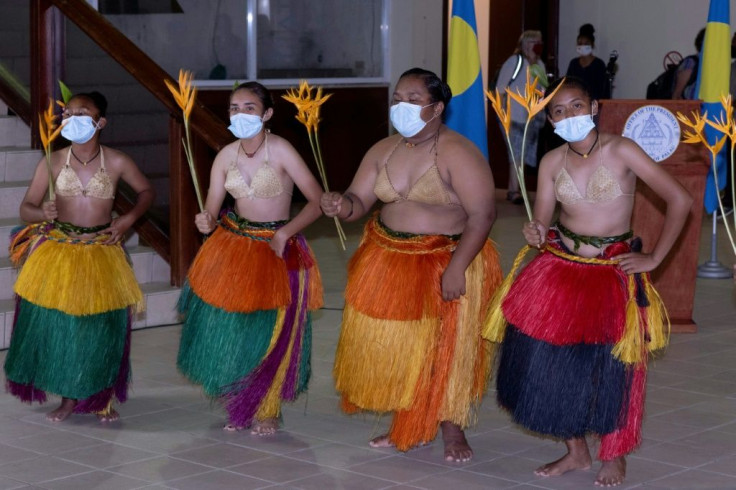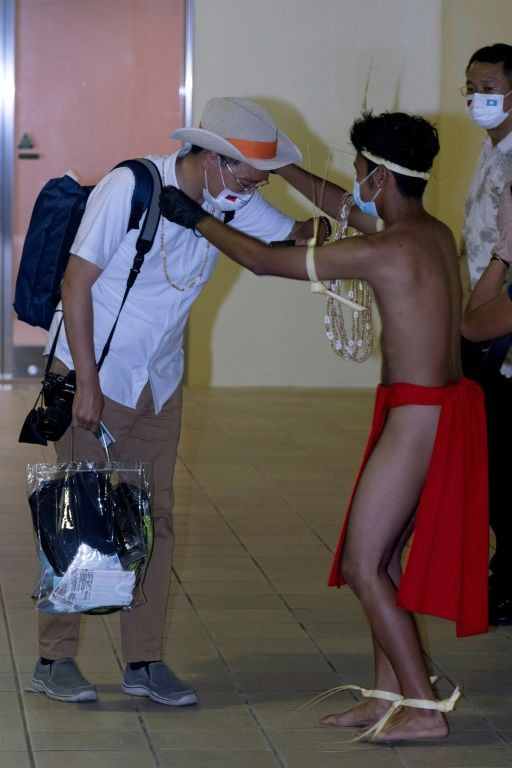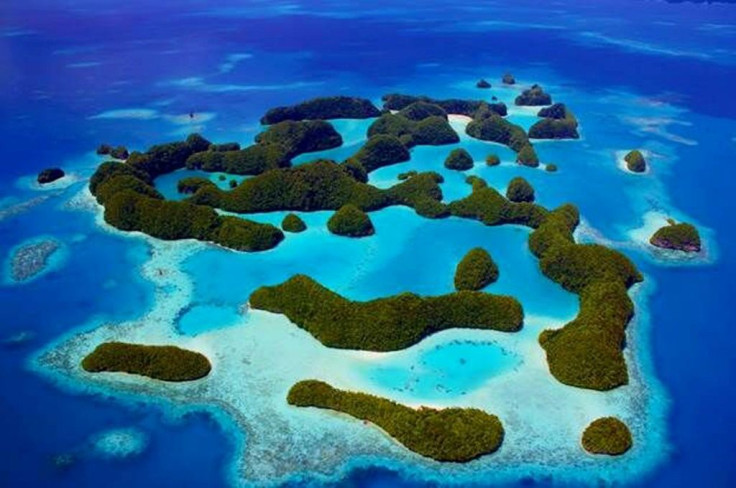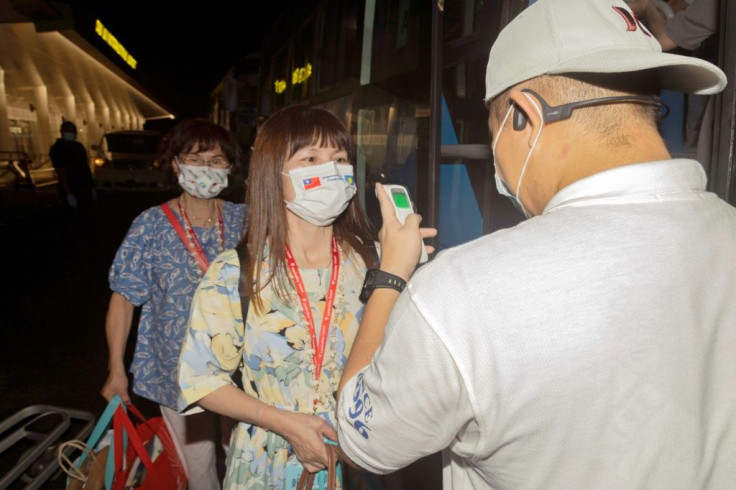Palau Hails 'Ray Of Light' Taiwan Travel Bubble
Palau's president has declared the opening of a rare holiday travel bubble with Taiwan as a "ray of light" that shows the world is slowly emerging from the coronavirus pandemic.
After making a promotional visit to Taiwan, President Surangel Whipps escorted about 100 holidaymakers back to the tiny Pacific island nation late Thursday aboard the first tourist flight to land since Palau closed its borders in March last year.

Whipps posed for selfies as traditional dancers greeted the masked visitors, with the charismatic leader saying he was "energised and excited" by the occasion.
"This makes us feel that we can make it through this. There is a light at the end of the tunnel. It's beginning to get better and we can fight this pandemic," he told the tourists.

"It should not cripple us, it should not hold us back. We should keep striving to move forward -- you being here begins that journey."
Palau, a nation of about 18,000 people that lies some 1,000 kilometres (600 miles) east of the Philippines, is one of the few places on Earth never to have recorded a Covid-19 case.

But its tourism-reliant economy has been hit hard by the pandemic and when Whipps was elected last November, he prioritised a bubble with Taiwan, which has contained community transmission of the virus.
Despite Taiwan's coronavirus-free status, strict measures will still be enforced, including testing all tourists before their flight and restricting them to tour groups, with no individual excursions.
To keep contact with Palau locals to a minimum, tourists must stay at designated hotels, eat in separate restaurant areas and shop only at set times.

Whipps acknowledged that enduring an invasive nasal swab was not the best way to start a holiday and said that, over time, some of the rules could be relaxed.
"I know it's uncomfortable but it's about keeping people safe," he said.
The plan is to eventually have 16 flights a week on the route, which Whipps said would help rebuild the economy.
There was also a political element underpinning the travel corridor, with Palau one of only 15 nations that recognises Taiwan over China, despite intense pressure from Beijing to switch sides.
"It's important we show the world how strong this partnership is," Whipps said.
The political message was underlined when the US ambassador to Palau, John Hennessey-Niland, accompanied Whipps to Taiwan ahead of Thursday's flight.
His presence was a rare visit to Taiwan by a serving diplomat and irked China, which views the island of 23 million as part of its territory and has vowed to reclaim it, by force if necessary.
Whipps thanked Hennessey-Niland for joining him and said US-supplied vaccines had been crucial in allowing Palau to open up to Taiwan.
"(We) are grateful for the partnership and the generosity of the US government, which provided the vaccine doses to Palau to make this sterile travel corridor possible," he said.
© Copyright AFP {{Year}}. All rights reserved.





















